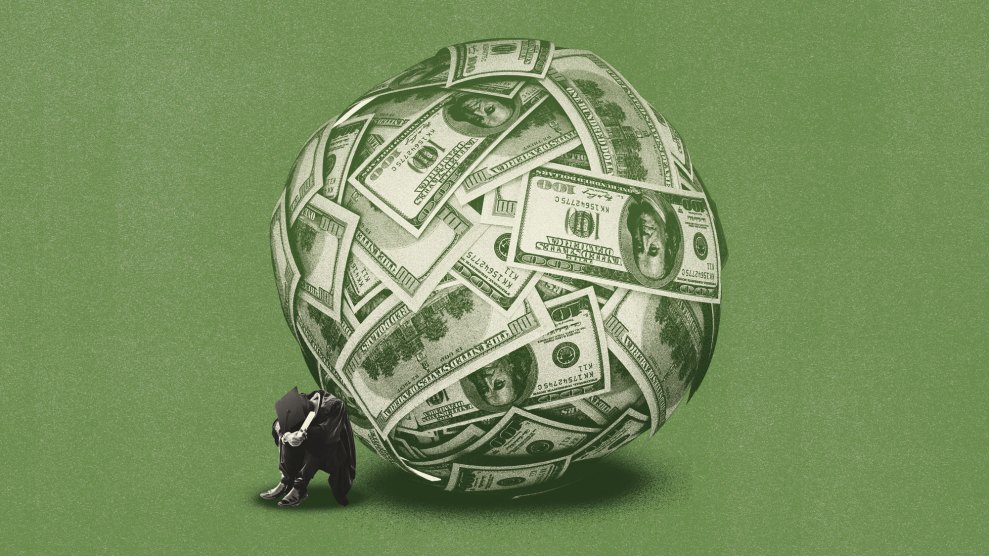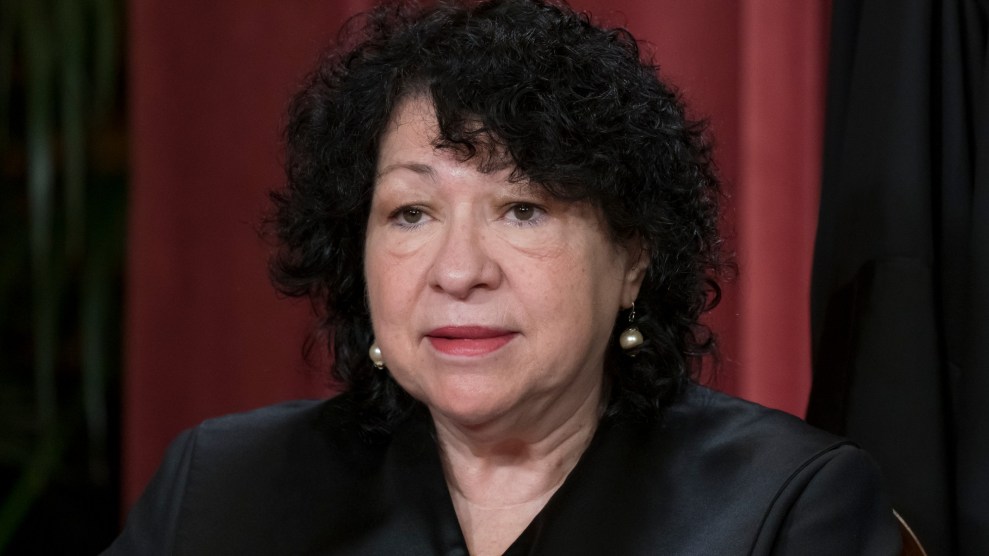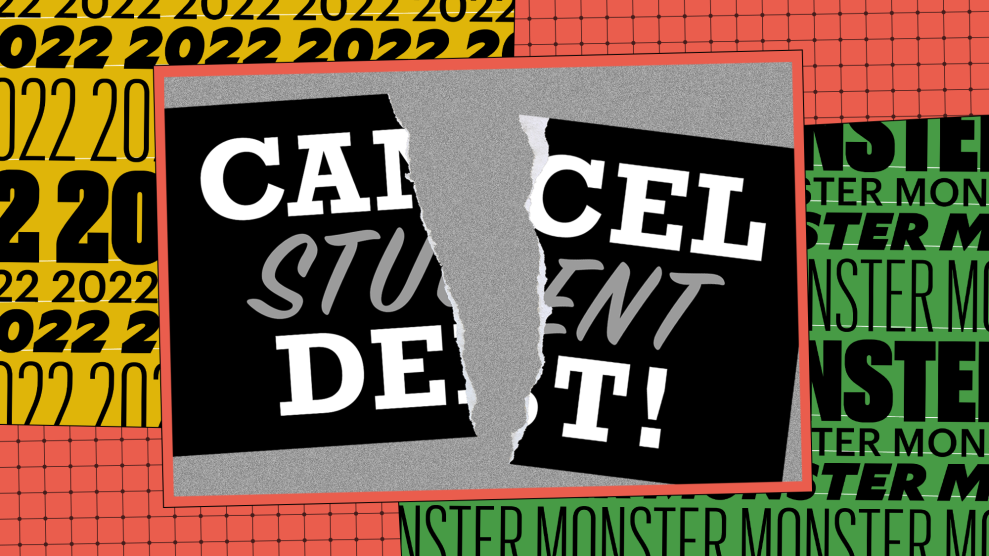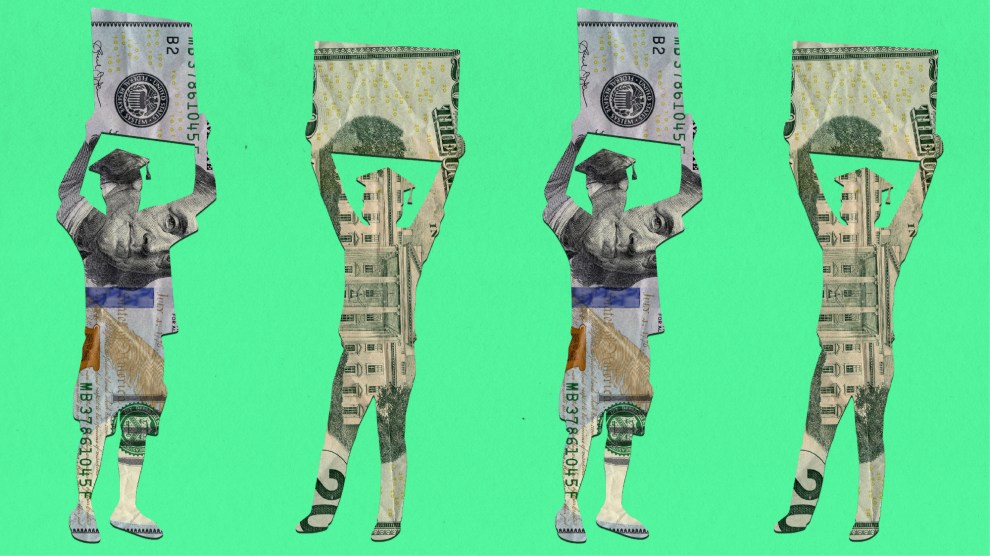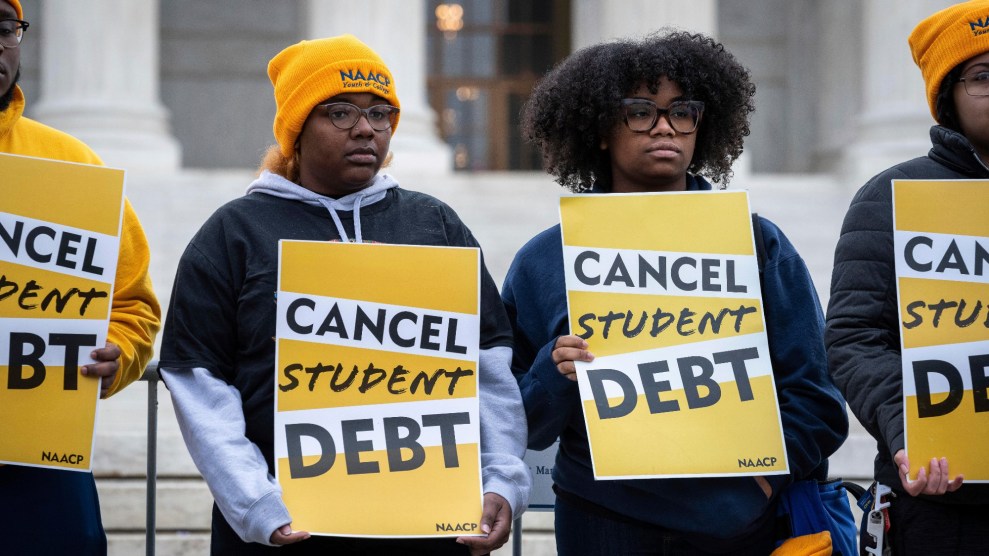
Alejandro Alvarez/AP
Newly obtained records from the Missouri Higher Education Loan Authority (MOHELA) show that executives and employees at the student loan servicer are surprised and dismayed at their company’s central role in the lawsuit before the Supreme Court that seeks to undo Biden’s student debt cancellation plan. MOHELA has never been a party to the lawsuit, yet the six Republican-led states who oppose debt relief have made the servicer a central player in their arguments before the high court.
“MOHELA was opposed to this move, but couldn’t do anything about it,” wrote one employee in an internal email this fall.
During oral arguments before the Supreme Court this past February, officials from these six states, including the Missouri attorney general, argued that Biden’s plan—which would cancel $10,000 in student loans for low- and middle-income borrowers, and double that amount for borrowers from the poorest backgrounds—would cause their states to lose money. If fewer Americans have student debt, their argument goes, then that will depress the revenue of state entities that profit off those loans.
The problem, however, is that the entities they are referring to, like MOHELA, have chosen not to participate in the lawsuit. This left Missouri to argue that it can pursue this argument on MOHELA’s behalf because the state and the debt servicer have a financial relationship: the state receives some of MOHELA’s revenues to fund its public education system. Several of the Supreme Court justices expressed skepticism at this tenuous argument for standing.
The email records obtained by the Student Borrower Protection Center show that some of MOHELA’s own employees were also confused and upset by the association of their company with efforts to undo student debt relief. One employee wrote: “just out of curiosity, is MOHELA apart [sic] of the lawsuit going on to prevent the loan forgiveness? Are we the bad guys?”
Several other notes showed that MOHELA employees feel that the state has roped MOHELA into their lawsuit in absentia in a calculated bid to achieve their own aims of killing debt relief.
“It has nothing to do with us, except that they’re using the MO consumers harm as standing,” noted one employee.
“The MO state AG needed to claim that our borrowers were harmed for standing, so they’re making us look bad by filing this,” another wrote.
What remains to be seen, now, is if the Supreme Court will buy the state of Missouri’s argument. A ruling is expected in the coming weeks. It will decide if Biden’s program, which would provide relief to about 40 million Americans, can move forward.

